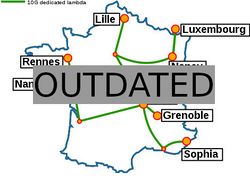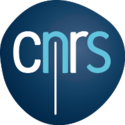Grid5000:Home
|
Grid'5000 is a large-scale and versatile testbed for experiment-driven research in all areas of computer science, with a focus on parallel and distributed computing including Cloud, HPC and Big Data. Key features:
Older documents:
|
Random pick of publications
Five random publications that benefited from Grid'5000 (at least 2517 overall):
- Quentin Guilloteau, Olivier Richard, Éric Rutten. Étude des applications Bag-of-Tasks du méso-centre Gricad. 2022. hal-03726257 view on HAL pdf
- Anna Mossolova, Kamel Smaïli. The only chance to understand: machine translation of the severely endangered low-resource languages of Eurasia. The Fifth Workshop on Technologies for Machine Translation of Low-Resource Languages (LoResMT), COLING 2022, Oct 2022, Gyeongju, South Korea. hal-03774644 view on HAL pdf
- Adrien Gougeon. Optimizing a dynamic and energy efficient network piloting the electrical grid. Networking and Internet Architecture cs.NI. Université de Rennes, 2023. English. NNT : 2023UREN0001. tel-04086397 view on HAL pdf
- Maxime Gonthier, Loris Marchal, Samuel Thibault. Memory-Aware Scheduling of Tasks Sharing Data on Multiple GPUs with Dynamic Runtime Systems. IPDPS 2022 - 36th IEEE International Parallel & Distributed Processing Symposium, May 2022, Lyon, France. pp.1-11, 10.1109/IPDPS53621.2022.00073. hal-03552243 view on HAL pdf
- Mohamed Aimen Djari. Study of the potential of graph-based approaches in blockchains. Cryptography and Security cs.CR. Université Rennes 1, 2022. English. NNT : 2022REN1S064. tel-03957362 view on HAL pdf
Latest news
Failed to load RSS feed from https://www.grid5000.fr/mediawiki/index.php?title=News&action=feed&feed=atom: Error parsing XML for RSS
Grid'5000 sites
Current funding
As from June 2008, Inria is the main contributor to Grid'5000 funding.
INRIA |
CNRS |
UniversitiesUniversité Grenoble Alpes, Grenoble INP |
Regional councilsAquitaine |


